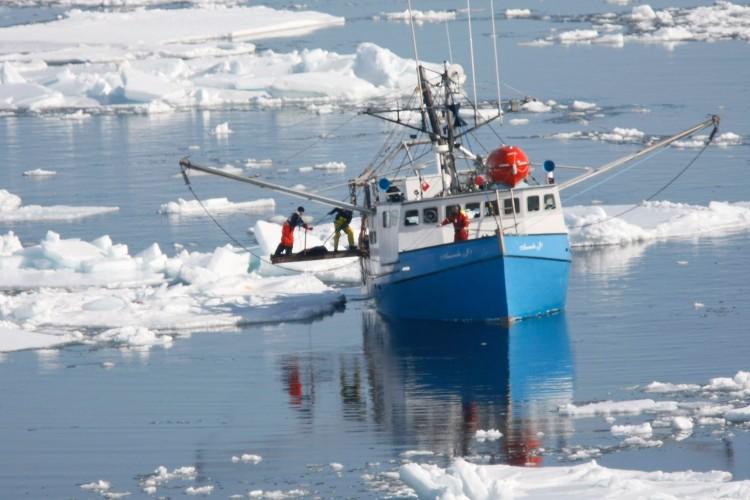The president of a union that represents fishermen told a Senate committee that animal rights activists and the media have destroyed the seal trade.
Greg Pretty, president of the Fish, Food and Allied Workers Union, which represents 14,000 members in Newfoundland and Labrador, told the Senate fisheries committee that the industry has begged for help from the federal government, according to a report in Blacklock’s Reporter on Oct. 2.
“We had the products, we had the beautiful coats, you name it, we had it,” said Mr. Pretty. “We had seal oil. We did all that. It was all done but it was all crushed. It was crushed by outside forces and we never had a champion in Ottawa to stand for us.”
Mr. Pretty said no one lobbied for seal hunters. “We don’t have a national champion on seals. You know, if the beef industry in this country was under attack like the seals are today, there would be action taken about it, believe me.”
“Any time that somebody from this province can land in Ottawa and have their coat sprayed by People for the Ethical Treatment of Animals and nothing happens, there might be a small misdemeanor charge, but that signal goes to the high schools and it goes right to the media who also are a part of that process that promote these individuals to the detriment of our harvesting industry,” said the union boss.
“Booming seal populations on the Atlantic Canada coast are depleting fish stocks and disrupting marine ecosystems as commercial fishers and local economies suffer,” the Standing Senate Committee on Fisheries and Oceans said in a news release on Sept. 22.
The committee said it heard estimates that the harp seal population just in the Northwest Atlantic is more than 7 million and growing. Since 2009, the seal trade has been under a European Union export ban, and since 2011, a China ban, which has collapsed the seal trade to about $275,000 annually from what was once $34.3 million a year.
The Department of Fisheries in a May 17 briefing note, “Seal Market Development,” said Asia was “one of its last opportunities for their industry to again become commercially viable.”
During a recent fact-finding mission to Newfoundland and Labrador, the Senate committee said they heard from “struggling sealers and fishers” who are “pleading for help” from Ottawa.
“The committee heard the government has only responded with hesitation, apathy and inaction,” said the news release. The committee called on the federal government to act before the issue becomes “unmanageable” and said that improving seal science and expanding domestic and international markets for seal products should be priorities.
The committee’s fact-finding mission took place from Sept. 11 to Sept. 13, but the committee actually began studying seal populations in fall of 2022. The senators on the committee visited several sites including the Port de Grave harbour, the John C. Crosbie Sealers Interpretation Centre in Elliston, and the Carino processing plant in South Dildo.
Ontario Sen. Salma Ataullahjan asked, “What is driving this campaign against the seal hunt?”
“We haven’t seen that level of campaigns against, say, eating beef, eating lamb,” said the senator.
“We started talking about baby seals and the prettiness of the facial composure of a seal versus other animals,” said Mr. Pretty.
“The lamb is cute,” replied Ms. Ataullahjan.
“I love rack of lamb, I must say, but I have never seen anyone paint my coat over it,” replied Mr. Pretty. “Seriously, the point is that is part of the process.”
Lorelei Roberts, assistant deputy fisheries minister for Newfoundland and Labrador, told the Senate committee that seal hunting was being badmouthed even within public schools in the province. “One of my friends’ daughters, she is 9, and she spoke to me about seals,” testified Ms. Roberts.
“She said, ‘You know, Lorelei, they are talking about seals in school, but I wanted to come and ask you about it,’” said Ms. Roberts. “She said, ‘They are saying that we kill baby seals.’”
“I said, ‘You know that is actually not factual,'” said Ms. Roberts. “We don’t kill baby seals. We kill adult seals, and there are a lot of seals, and it is the same as if we have meat from cows, meat from pigs. There is a purpose for an animal.”
“Ignoring Canada’s immense seal population isn’t a sustainable strategy. Canadians’ livelihoods, local economies, and the country’s threatened fish stocks depend on an effective management strategy for the seal population, including comprehensive support for the sealing industry,” Sen. Bev Busson, deputy chair of the fisheries committee, said in the news release.
Sen. Brian Francis added, “The sealing industry needs a champion.” He called on the federal government to take steps for a sustainable seal harvest and mentioned the importance of the seal products industry to Indigenous and northern communities.





